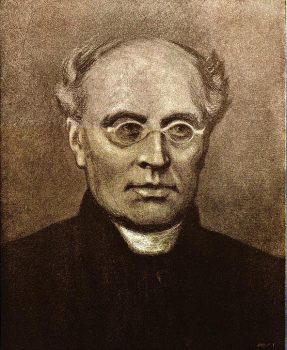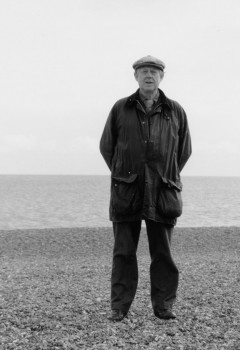Search results for "sofi oksanen/feed/www.booksfromfinland.fi/2012/04/tuomas-kyro-mielensapahoittaja-ja-ruskea-kastike-taking-offence-brown-sauce"
Front-Line Tourists
30 September 1976 | Archives online, Fiction, Prose
An extract from the novel Nahkapeitturien linjalla (‘On the tanners’ line’, 1976)
Paavo Rintala (born 1930) published his first novel in 1954 and since then has brought out a new book almost every year. A merciless critic of the myths surrounding certain national figures and events, he has written about Marshal Mannerheim, against attempts to glorify war, and the ‘inevitability’ of Finland’s involvment in the German Barbarossa plan. He has made considerable use of reportage technique to produce anti-war documentaries and in more recent years worked with international subjects.
His books have been widely translated and are popular in East and West Europe. Paavo Rintala’s novel Sissiluutnantti (‘Commando Lieuenant’, Otava 1963) and its reception were the subject of a book by the ltterary critic Pekka Tarkka (Paavo Rintalan saarna ja seurakunta. ‘Paavo Rintala’s sermon and congregation’, Otava 1966). Paavo Rintala is chairman of the Finnish Peace Committee. The passage below is taken from Nahkapeitturien linjalla (‘On the tanners’ line’, Otava 1976) in which he again turns his attention to the war years. Rintala looks at the events of the years leading up to the war and the course of the war itself through the eyes of many different people – from the leading politicians of the day to the ordinary soldier.
The novel has already been acclaimed as the monument to the ‘unknown soldier’ of the Winter War.
![]()
Hessu duly presented himself at the Viipuri office of the Army Information Department (Visitors’ Escort Section), where it was implied that the expected visitors were Very Important People and that a singular privilege was being conferred upon Hessu and such front-line troops that the party might visit. Although His Excellency Field-Marshal Mannerheim made it a rule never to allow front-line visits by ordinary journalists or even by special correspondents, these gentlemen were, it seemed, such influential people that H.E. had agreed to their visit without demur. “You understand, Padre, what a great responsibility this will be for you? These are very high-up people.” More…
A happy day
12 August 2010 | Fiction, Prose
‘Muttisen onni eli laulu Lyygialle’ (‘Muttinen’s happiness, or a song for Lygia’‚) a short story from Kuolleet omenapuut (‘Dead apple trees’, Otava, 1918)
‘Quite the country gentleman, eh, what, hey?’ says Aapeli Muttinen the bookseller. ‘Like the poet Horace – if I may humbly make the comparison, eh, dash it? With his villa at Tusculum, or whatever the place was called, given to him by Maecenas, in the Sabine hills, wasn’t it? – dashed if I remember. Anyway, he served Maecenas, and I serve – the public, don’t I? Selling them books at fifty pence a copy.’
Muttinen’s Tusculum is his little plot of land in the country. A delightful place, comforting to contemplate when the first signs of summer are beginning to appear, after a winter spent in town in the busy pursuit of Mammon, under skies so grey that the wrinkles on Muttinen’s forehead must have doubled in number. A summer paradise of idleness… More…
Digging for gold
30 June 1989 | Archives online, Fiction, Prose
Antti Tuuri has found his theme in the life of Finnish émigré communities and their experience in what used to be called ‘the New World’. Uusi Jerusalem (‘The New Jerusalem’, 1988), is about the Finns who migrated to Canada during the Depression, only to find that their utopian dreams had no basis in reality. In the following extract the narrator finds himself and his fellow mineworkers in the middle of the forest at night, on the way by foot to the Kirkland Lake gold mines, where they are going to be strikebreakers. The novel, an ironical tale of life in a new land, follows on from Pohjanmaa (‘Ostrobothnia’, 1982), Talvisota (‘The Winter War’, 1984), Ameriikan raitti (‘The American road’, 1986).
The train pulled up at Swastika station, many a mile from Kirkland Lake, and Hamina said we’d have to press on by foot from the station to the town.
Swastika, he said, meant the crooked cross, but he didn’t know whether there were any of those German Adolf-fanciers around, who were so keen on the sign. He was certain, in fact, the town had got its name long before anyone in Germany had heard of Adolf or his swastika.
We asked why we had to walk from here to the town. Hamina said we’d got to walk because even in Canada vehicles didn’t drive through the backwoods; moreover, it wasn’t a good idea to walk along the Kirkland Lake road: we might meet up with the kind of guys who’d make our arrival at Kirkland Lake seem very unwelcome. More…
Weird calm
31 March 1998 | Archives online, Fiction, poetry
A selection of poems, translated by Herbert Lomas and Anselm Hollo. Interview by Tarja Roinila
Agnosis IV
Set your altar up in the evening,
in the morning clear it away:
the wandering goes on. Don't persuade yourself
of anything, or anyone else:
fearful forces are epidemic,
no place is sacred
for long.
Again and again
the sacred
starts.
If you happen to be
there don't refuse to see.
(1989)
a light wind
stirring a treetop:
a shoal of fish
in blue abyss
From Hiidentyven (‘Weird calm’, Otava, 1984) More…
Travelling alone
30 June 2005 | Fiction, poetry
Poems from Ödemjuka belles lettres från en till en (‘Humble belles lettres from one to one’, Schildts, 2002)
Blind Alley Travel Bureau
We arrive on the last arrival.
Turn the lights out when you go, the airport staff ask.
To this place you and I must travel. It was the only departure
that was called. The only place there is, said the guide.
One’s vision is blocked by the view. We’ll find no somewhere else.
‘When I fall asleep, drive the last stretch by yourselves,’
says the driver.
A last summer family lift him into
their homeward-returning back seat. More…
The pearl
30 December 1999 | Fiction, Prose
A short story from Tutkimusmatkailija ja muita tarinoita (‘The explorer and other stories’, Loki-kirjat, 1999)
My name is Jan Stabulas. I am one of the quietest and inconspicuous workers in our department store, this giant ant-heap swarming with people. No one really pays any attention to me, although I am on show all the time. My job is quite simple: to stand in the menswear department, dressed in fashionable clothes. Now that doesn’t take much, I have heard it said. Well, try it yourself. Try standing for ten hours, without moving, in an awkward, even an unnatural, position, wishing that the air conditioning would work when it was hot, or that it would be switched off when you can feel the draught cutting you to the marrow. Think how the customers stare at you as they pass by, like an object which they cannot buy, and consider your words once more. More…
Caravans of winds
30 June 1988 | Archives online, Fiction, poetry
Poems from three collections. Introduction by Kaija Valkonen
The river of death froze
It froze, the river of death, froze too the boat of death in the nights of the Winter War, in the Winter War's nights. The men shed blood, shed blood , and it froze, the river of death. In the nights of the Winter War, it froze, the river of death.
Day of mourning
For one day I’ve the right to mourn,
for one day I’ll shut the windows of the sky,
I’ll dismiss the blue,
I’ll raise a black sun to mark my mourning.
For one day I’ll wilt the flowers,
for one day I’ll silence the birds. More…
Chronicles of crisis
31 December 1982 | Archives online, Fiction, Prose
Books from Finland presents here an extract from Dyre prins, a novel by the Finland-Swedish writer Christer Kihlman that is to be published in 1983 by Peter Owen of London under the title Sweet Prince, in a translation by Joan Tate.
Christer Kihlman (born 1930) first became known as a poet; but, after publishing two collections of poetry, he turned to novels. He has been branded a merciless scourge of the bourgeoisie. Equally important in his writing, however, are his masterly psychological analyses, his examination of the myriad aspects of the human personality, his sovereign disregard for taboos and his unflagging search for the truth. His books are about crises – the conflict between the generations, between the individual and society, between opposing political ideologies, between homosexual and heterosexual love. As Ingmar Svedberg remarked in an extensive appreciation of Kihlman’s work that appeared in Books from Finland 1-2/1976, ‘In his perceptive moral analyses, his exploration of the depths of human destructiveness and degradation, Kihlman is sometimes reminiscent of Faulkner.’ Since 1970, Kihlman has published three revealing autobiographical works, two of them dealing with his encounter with South America; Dyre prins, first published in 1975, represents a brief interlude of fiction.
The extract printed below is accompanied with a personal appreciation of the novel by its English translator, Joan Tate
Grandfather’s astonishing revelation gave me a new perspective on my life. I had suddenly been given a concrete, genuine foundation for both my hatred and my self-esteem. In a way I took the story of my origins as an extreme confirmation of the rightness of the Communist interpretation of reality, and at the same time it gave me a wonderful, dazzling sensation of being someone, despite everything, of having a place in a meaningful human perspective of time, despite everything, of being a link, however modest, in the historical family tradition. I did not need to found a dynasty; I already belonged to a dynasty, if only a minor branch. One was less important than the other, and even if the two experiences were irreconcilable and contradictory, they existed all the same in the same consciousness, contained within the same consciousness, my consciousness. I, Donald Blad! More…
The fairest in the land
26 January 2012 | Children's books, Fiction
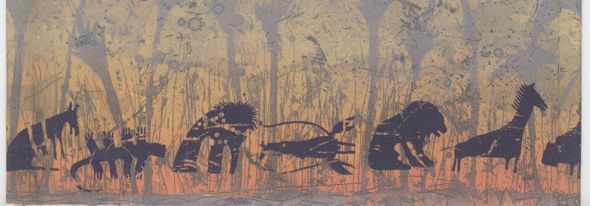 Two fables from Gepardi katsoo peiliin (‘The cheetah looks into the mirror’, Tammi, 2003). Illustrations by Kirsi Neuvonen. (More fables by Hannele Huovi here.)
Two fables from Gepardi katsoo peiliin (‘The cheetah looks into the mirror’, Tammi, 2003). Illustrations by Kirsi Neuvonen. (More fables by Hannele Huovi here.)
Lizard
The air rippled above the pile of stones. The lizard twitched her hip and took up an s-shaped pose like an ordinary photo model. After a moment she changed her left side to a convex curve. The movement was quick and graceful; the lizard’s tail swished through a broad arc so quickly you could hardly see it. Her thin, blistery skin pressed against the surface of the stone. The lizard felt the rough, raised patterns through the thin skin of her belly. She felt unpleasant, but otherwise the place was good, and the lizard did not have the energy to look for a better one. She looked through her eyelashes at the fissured sky and saw the golden disc shining at the centre of the dome. She was happy. Everything in her life was good, the weather was pleasantly dry, the temperature exactly suitable. More…
How to peel an orange
30 December 2002 | Fiction, Prose
Extracts from the novel Auringon asema (‘The position of the sun’, Otava, 2002)
There are times when God rules. Then logic is burned on bonfires and left to rot in damp prisons with rats. There are times when logic rules. Then God is burned in the squares and his houses are made into schools. There are times when attempts are made to demonstrate that God and logic can live in the same place and that they are, in fact, the same thing, but those times are truly strange times. And there are times when God and logic live side by side but in different places, like adult siblings who cannot live in the same place but nevertheless get on well together. When my father and my mother loved each other, they were ruled by God, and there was no logic in it, none at all. More…
Solitude growing
30 June 1995 | Archives online, Fiction, Prose
Extract from Häiriö maisemassa (‘A disturbance in the landscape’, Otava, 1994). In this, her first novel, Raija Siekkinen – well-known for the fragile prose fof her short stories – continues her dissection of the soul with an account of the experience of a womanwho finds that many lives are being lived through her own
She was pregnant. After all these years, the woman finally found she was pregnant: it was as if the man had made a last attack to retain his hold on a country he had once conquered.
She let the days go by, the days of autumn, which night by night edged more shadow across the damp lawn. She looked at the man from a distance, not seeing him; her mind rehearsed what she knew about him. The man had two children from a previous marriage. The woman had not wanted the children to come here, and neither did their mother; that was, indeed, the only subject on which they agreed. The man went to visit his children; they never spoke about what happened on those occasions. More…
Tuuve Aro: Korson purppuraruusu [The purple rose of Korso]
16 January 2012 | Mini reviews, Reviews
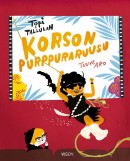 Korson purppuraruusu
Korson purppuraruusu
[The purple rose of Korso]
Kuvitus [Ill. by]: Sanna Mander
Helsinki: WSOY, 2011. 109 p.
ISBN 978-951-0-38052-9
€ 25.70, hardback
Sometimes a book’s appearance is enough to win the reader over. The first children’s novel by writer and film critic Tuuve Aro (born 1973) encourages the belief that things will work out for the best. The book’s positive undertones are also reflected in Mander’s fresh illustrations, which exude retro-nostalgia for the 1950s and 1960s in shades of orange, black, and brown. Tallulah, a jungle princess, turns up unexpectedly to sort out the complicated affairs of Topi, a schoolboy who is being bullied. Tallulah comes into the suburb of Korso from the silver screen, out of Woody Allen’s film The Purple Rose of Cairo. The jungle princess helps Topi to see the bleak suburb as an exotic habitat where adventures are waiting just round the corner. The adult reader gets to enjoy a few carefully chosen references to major cinematic landmarks. Aro eschews problem-centred realism and angst, even though the children’s problems are an indirect result of decisions taken by adults. The Tallulah figure incorporates a hefty dose of anarchy, familiar from Astrid Lindgren’s Pippi Longstocking.
Translated by Fleur Jeremiah and Emily Jeremiah
What Finland read in August
12 September 2013 | In the news
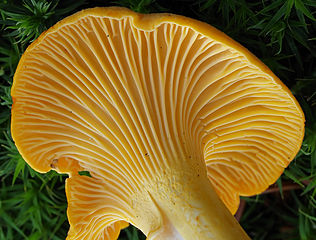
Cantharellus cibarius: very edible. Photo: Wikimedia/Andreas Kunze
The August list of best-selling fiction and non-fiction, compiled by the Finnish Booksellers’ Association, features thrillers, new Finnish fiction, dictionaries and diet guides.
Number one of the Finnish fiction list was a new crime novel by Leena Lehtolainen, Rautakolmio (‘The iron triangle’, Tammi). The new novel, Hägring (‘Mirage’, Schildts & Söderströms; in Finnish, Kangastus, Otava), by Kjell Westö, was number two; in third place was Aapine, an ABC-book written in the south-western dialect by poet and author Heli Laaksonen and illustrated by Elina Warsta (Otava).
The list of translated fiction included – not surprisingly – names like Dan Brown, Jon Nesbø, Camilla Läckberg, Charlaine Harris and Henning Mankell.
5:2 dieetti (The Fast Diet), by Michael Mosley and Mimi Spencer, sold like hot cakes – the Finns are statistically the fattest people in Scandinavia – and was number one on the non-fiction list. There were also several dictionaries (four of them Finnish-English-Finnish) as well as a field guide to mushrooms, of which there are plenty in the woods this early autumn. It is indeed essential to be able to tell the Poisonpie and the Sickener from the real deliciacies.

